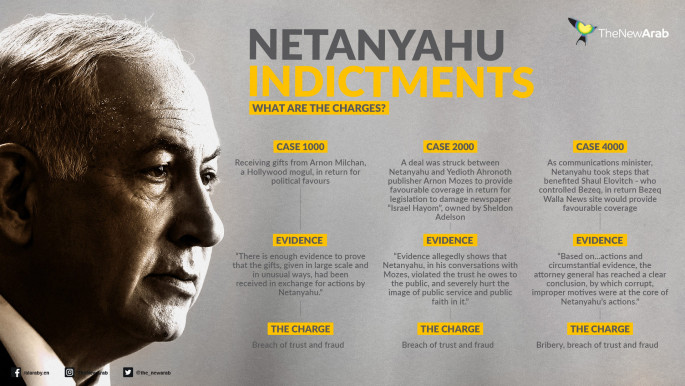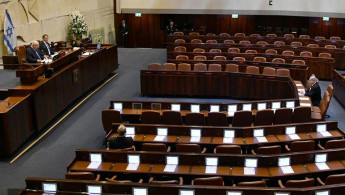Israeli parliament to vote on coalition deal between Netanyahu, Gantz
Israel's parliament was set to vote on Wednesday on laws approving a coalition deal between Prime Minister Benjamin Netanyahu and his rival-turned-ally Benny Gantz, ahead of a deadline to avoid yet another election.
The alliance formed last month between the right-wing incumbent and his ‘centrist’ challenger followed three inconclusive elections in less than a year.
Under the three-year deal, Netanyahu will serve as prime minister for 18 months, with Gantz as his alternate, a new position in Israeli governance.
They will swap roles midway through the deal, while cabinet positions will be split between Netanyahu's Likud party and Gantz's Blue and White Alliance, as well as their respective allies.
Comment: The Netanyahu-Gantz coalition farce
The deal could offer Israel a rare period of political stability as it seeks to repair the economic damage wrought by the novel coronavirus, which has infected more than 16,000 people in the country.
But the pact's opponents have sought to torpedo it in the Supreme Court and in parliament.
Parliament vote
Bills to pass the coalition deal into law were brought to parliament on Tuesday.
They faced about 1,000 amendment requests from opponents.
But the bills appear to have a path to the 61 seats needed to pass, counting Likud's 36 Knesset votes, the 15 controlled by Gantz and ultra-Orthodox MPs that support Netanyahu.
If they pass, parliament would then formally ask President Reuvin Rivlin to give Netanyahu a mandate to form a government.
With a presidential mandate, Netanyahu would have two weeks to finalise his coalition, including ongoing haggling over cabinet jobs.
But if the unexpected happens and parliament does not endorse a candidate for prime minister by midnight Thursday, Israel could be forced to hold its fourth election in less than two years, a prospect dreaded across the political spectrum.
Petitions to the Supreme Court
In a two-day hearing this week, the Supreme Court heard arguments from eight petitioners seeking to block the deal, including former Gantz ally Yair Lapid, head of the opposition Yesh Atid party.
A main issue is whether Netanyahu is legally allowed to form a government while under criminal indictment.
He has been charged with accepting improper gifts and illegally trading favours in exchange for positive media coverage.
He denies wrongdoing and his trial is set to start on May 24.
While Israeli law bars ministers from serving while under indictment, there is no such law applying to prime ministers.
Many legal experts have said the 11-judge panel hearing the case will likely follow guidance from Attorney General Avichai Mandelblit, who indicted Netanyahu, but who also told the court there was no legal impediment to Netanyahu forming a government.
The deal's opponents also challenged specific provisions in the agreement.
Likud and Blue and White on Tuesday informed the court they would adjust some of the provisions that caused concern.
Under the coalition deal, the government was to be defined as an "emergency" body for its first six months, tasked exclusively with combatting the coronavirus.
Following questions about that clause's legality, the parties said they would amend the deal to say coronavirus will be the priority through the first six months, but other issues can be also handled.
They also said they would pause certain public appointments for only 100 days, instead of the originally planned six months.
Mandelblit also advised the court that the coalition deal should not be struck down because of problematic clauses, suggesting such issues be addressed at the "implementation stage."

Follow us on Facebook, Twitter and Instagram to stay connected





 Follow the Middle East's top stories in English at The New Arab on Google News
Follow the Middle East's top stories in English at The New Arab on Google News


